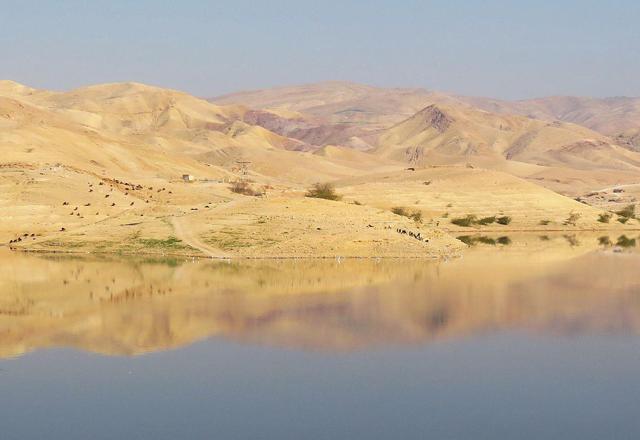You are here
Water allocation, rationing on the table following groundwater consumption study
By Hana Namrouqa - Dec 09,2019 - Last updated at Dec 09,2019
AMMAN — Water pumping from the Kingdom’s main aquifers increased by 32 per cent between 2017 and 2018, according to a new study released on Monday, prompting a debate around the need to reconsider crop water allocation.
The study detected groundwater consumption patterns using satellite remote sensing applications, Ministry of Water and Irrigation Spokesperson Omar Salameh said on Monday.
“Results of the study will help decision-makers and farmers take informed decisions on the optimal crop water allocation while preserving groundwater from further depletion,” Salameh told The Jordan Times.
The study surveyed six of Jordan’s main aquifers that are also undergoing random pumping and thus dropping water levels, Salameh noted.
The aquifers are located in Azraq, Amman, Zarqa, the Dead Sea, Al Jafer and Yarmouk, according to the ministry.
Ministry of Water and Irrigation Secretary General Ali Subah said that the study measured the amount of extracted water from the above mentioned aquifers, noting that the ministry seeks to partner with the agriculture sector to review crop irrigation allocation.
“The study recommended rationing the consumption of groundwater after data showed that the amount of extracted groundwater increased from 6.6 million cubic metres of water in 2017 to 8.7 mcm in 2018,” Subah said at a workshop to announce results of the study.
The ministry has formed a national committee to reconsider the water allocations of crops, Subah said, noting that calculations of future crop allocations will depend on the results of the study.
He underscored that the agriculture sector will be involved in the process, highlighting that it is one of the ministry’s main partners.
Subah said that the ministry implemented the study in cooperation with the USAID/Jordan Water Management Initiative, noting that using satellite remote sensing “will help the ministry increase the efficiency of irrigation water”.
The government official highlighted the importance of preserving groundwater and limiting random pumping, noting that Jordan faces water challenges that are only exacerbated by population growth due to regional instability, climate change, dropping precipitation and rising temperatures.
Related Articles
Satellite remote sensing of aquifers in Mafraq Governorate’s Ramtha District has uncovered “startling” results on the magnitude of violations on underground water resources, according to government officials.
AMMAN — Experts from The Netherlands, Jordan and the US teamed up to find possible solutions for climate change adaptation, and options to i
AMMAN — In the framework of the celebration of 60 years of Jordanian-German Development Cooperation, the Ministry of Water and Irrigation, t












